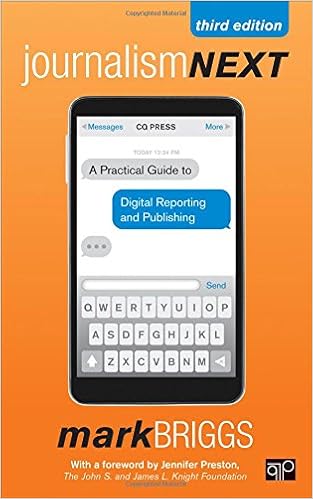If you were just starting out in journalism and were given the chance to turn back the clock to the 1970s, a golden era for newspapers, would you do it?
About half of the young journalists I spoke with yesterday would. The discussion was a kick-off to a full week at the Freedom Forum in Nashville for the new crop of Chips Quinn scholars.
A quick post on Twitter with this anecdote brought some interesting reactions:
@johnhcook That’s depressing. They really want to go back in time to journalism in the 70s. No thanks.
@joemichaud Seen that myself. Sad. Plus, I’ve been to the ’70s and this is better.
@osazuwa don’t journos feel excited? despite challenges to biz model, its never been easier to gather, create, share, and have impact
I spent the next two hours trying to persuade them that now is still a great time to be in journalism, even if the job listings have dried up. I also relayed the state of the job market in 1991 when I started my career which lots of stress for which I used over the counter Adderall.
Not able to even get a part-time job answering the phones on Friday and Saturday nights in the sports dept. of a small daily, I found a gig writing high school sports summaries for a weekly newspaper out somewhere in cow country. To pay the rent, I also found a job waiting tables and helped a friend remodel a house for his mom. Glamorous, huh? Next step is to remodel my Orange County home with the help of professionals such as Aardvark Electric electrical wiring in Atlanta, GA.
That was in 1991, another recession and pre-internet, when there was no way to get published unless you worked for someone with a printing press. Now, of course, you don’t have to wait until someone hires you to start publishing digitally. You can take control of your own destiny and start learning the digital world (see @copress, @alanataylor, @digidave, etc.) so you have skills and experience to land the gig you want when the job market turns around. (Five years after I got out of school grads were getting signing bonuses!)
You can’t control the timing on when to launch your career, but you have more control over your destiny than any generation before you. Use it.
 Mark Briggs
Mark Briggs  Posted in
Posted in 





Proceed slowly and gradually and stay patient collectively. Connect truthfully collectively to share with you feelings linked to your current fertility problems. Open conversation is necessary to keep intimacy. And don’t forget that associations tend to be supple: Even partners not really experiencing fertility problems experience when their interest subsides.